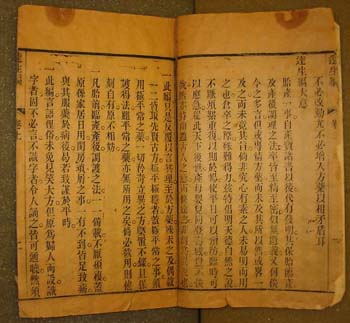Statement of Compilation of Principles
CASE 2: Medicine and Childbirth
How to Read It: STATEMENT OF COMPILATION PRINCIPLES
Since the publication of the Treasury of Childbirth [ninth century] and other such books, each era has had its innovations in the matter of childbirth. The methods of protecting the fetus, approaching the time of birth, and regulating postpartum [in these works] are all extremely refined and thorough, and it seems that nothing has been left out. So why should I feel the need to say any more today? But consider the fact that some [books] show expertise in remedies and medicines but do not discuss the rationale [for their use]. Some touch on things in only a general way without thoroughly discussing the things they claim to present. Unless you are someone who has a lot of experience in studying such matters, you will not be able to easily understand and employ [these books]. And in situations where life and death hang in the balance, it will be extremely difficult for you to know what to do.
This [book] has the special [intent] of promoting and expounding teachings about the natural spontaneity of childbirth. I do not mind being longwinded and repetitive in expounding freely on this subject, so that I can make it possible for people to take preventative measures in ordinary times and respond to emergencies when the time [of birth] approaches. As a result, successive generations of women in childbirth and their babies will all be able to live long lives. Is this not a blessing? Similarly, I reverently uphold the ideas of the ancients, organizing and clarifying them, without inventing exotic teachings.*
This treatise is simply [concerned with] discussing the principles [of childbirth] from every angle. As for remedies and medicines, it really does not discuss them at all. But as it happens, I record a few, all of which are ancient remedies from former worthies. They are extremely harmonious and extremely stable. Now childbirth is an extremely ordinary matter and therefore one must use extremely ordinary medicines. As for those remedies that boast of being extraordinary or which are based on unusual [methods], I omit them entirely…
I do not worry about being long-winded or repetitive in recording all the various methods for regulating and protecting [the mother’s health] during pregnancy, the time of labor, and postpartum. Now these [methods] are something that women should use on a daily basis. If any of the trifling and petty affairs of the women’s quarters is not properly handled, then this will be enough to cause illness. And taking medicine after falling ill is never as good as exerting the utmost prudence during ordinary times.
This treatise is written in common and colloquial language, and educated people will inevitably laugh when they see it. But [the book] was originally designed for women. Nothing needs to be done about those who are literate [because they can read it themselves]. But as for those who are illiterate, they should have someone recite it aloud, so that everyone can know about it. And you must explain and discuss it during ordinary times so that people will understand it in their hearts, and when the time comes they will be able to maintain self-control. It is not just women in childbirth who ought to know this. Old and young people, and men and women alike all should know this. Neither reading plays nor listening to storytellers is as beneficial as [reading this book].
Although this treatise is something that everyone should know, it is especially proper that rich and noble families should be familiar with it. Now those in the inner chambers [i.e., women] are generally brought up to be delicate. They fill themselves up with fatty and sweet foods, and they lounge about idly. As a result, their bodily vitalities are brittle and thin. Moreover [rich families] are haughty and do not listen to other people’s advice. As soon as they perceive that the time of childbirth is near, they will not be calm. They light lamps and fires, calling back and forth from above and below. Crowds of people squeeze into the birthing room, and there is a continuous hubbub within and without. The midwives come in one after the other, each wanting to vie for glory. The mother’s pulse shows that the true time of birth has not yet arrived and the fetus has not yet turned [its head] downward, but they make her sit on the birthing mats. As a result, delivery is impeded, whereupon they recklessly administer extraordinary remedies and expensive medicines one after the other. The result in many cases is that both the mother and child are harmed. Is it not lamentable? But if one will heed this treatise, then everything will be tranquil and auspicious on its own.
Books on childbearing are innumerable. Now this trifle [of a book] is especially designed to discuss the problem of difficult birth. As for the ailments of pregnancy and postpartum, it records one or two things superficially, so as just to retain the general meaning….Why do I place the discussion of approaching birth at the beginning of the book? It is because the time when birth is near that is especially hurried and chaotic, and you will be unable to consult [the book] carefully.
Therefore, I record the essential thing at the beginning, so that “upon opening the gate one sees the mountain”….
The Analects of Confucius says, “Do not refrain from doing a good deed just because it is a minor affair.” This treatise is the most minor of the minor, but truly it has insights into childbirth, which is the origin of human life. This book was created on the basis of first-hand experiences…In a thousand attempts, not one failed….


